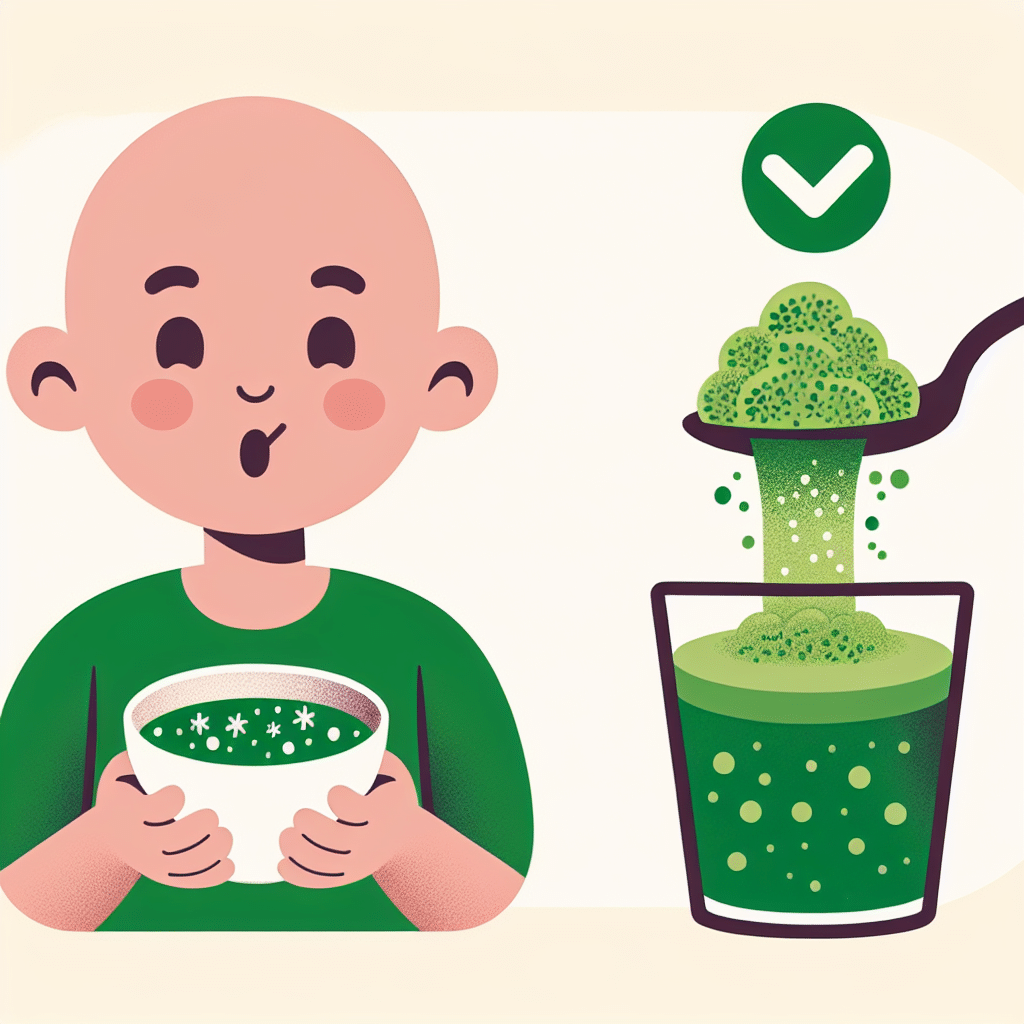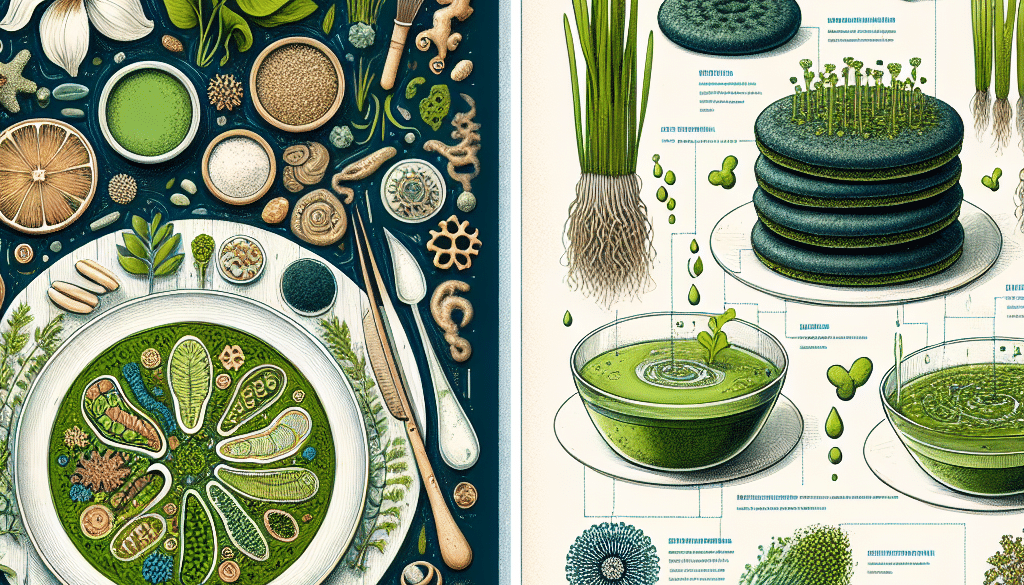Can Humans Eat Microalgae?
-
Table of Contents
- Microalgae as a Sustainable Food Source: Can Humans Consume It Safely?
- Understanding Microalgae and Its Nutritional Profile
- Health Benefits of Consuming Microalgae
- Safety and Regulatory Aspects of Microalgae Consumption
- Current Uses of Microalgae in Human Diets
- Case Studies and Examples of Microalgae in Human Nutrition
- Environmental Impact and Sustainability of Microalgae Production
- Challenges and Future Prospects
- Conclusion: Embracing Microalgae as a Nutritious Food Source
- Discover ETprotein’s High-Quality Protein Products
Microalgae as a Sustainable Food Source: Can Humans Consume It Safely?

As the global population continues to grow, finding sustainable and nutritious food sources becomes increasingly critical. Microalgae, microscopic organisms found in both freshwater and marine systems, have emerged as a potential superfood. But can humans safely consume microalgae? This article delves into the nutritional benefits, safety considerations, and current applications of microalgae in human diets.
Understanding Microalgae and Its Nutritional Profile
Microalgae are a diverse group of photosynthetic organisms that are rich in proteins, vitamins, minerals, and antioxidants. They are considered one of the most promising resources for sustainable food production due to their high growth rate and minimal environmental footprint. The most well-known microalgae consumed by humans are spirulina and chlorella.
- Spirulina: A cyanobacterium known for its high protein content, which can be up to 70% of its dry weight. It is also a good source of beta-carotene, various minerals, and essential fatty acids.
- Chlorella: A green alga that is rich in chlorophyll and also boasts a high protein content. It contains a unique component called chlorella growth factor (CGF), which is claimed to have various health benefits.
Health Benefits of Consuming Microalgae
Microalgae have been associated with numerous health benefits, including:
- Improving immune system function
- Reducing inflammation
- Detoxifying the body
- Lowering cholesterol levels
- Managing blood sugar levels
These benefits are attributed to the high concentration of nutrients found in microalgae, making them a potent supplement for those looking to enhance their overall health.
Safety and Regulatory Aspects of Microalgae Consumption
Before incorporating microalgae into the human diet, it is crucial to consider safety and regulatory aspects. The Food and Drug Administration (FDA) classifies certain microalgae like spirulina as Generally Recognized as Safe (GRAS). However, the cultivation and processing conditions can significantly affect the safety of the final product. Contaminants such as heavy metals, microcystins, and other toxins can be a concern if microalgae are not sourced and processed correctly.
Current Uses of Microalgae in Human Diets
Microalgae are currently used in various forms within human diets:
- Dietary supplements in the form of tablets, powders, and capsules
- Fortification of foods and beverages
- Alternative protein source in vegan and vegetarian products
These applications showcase the versatility of microalgae as a food ingredient and its potential to contribute to food security and nutrition.
Case Studies and Examples of Microalgae in Human Nutrition
Several studies have highlighted the positive impact of microalgae on human health. For instance, a study published in the “Journal of Medicinal Food” found that spirulina supplementation significantly reduced blood cholesterol levels in participants. Another study in the “European Journal of Nutrition” reported that chlorella intake improved antioxidant status and immune response in healthy individuals.
Environmental Impact and Sustainability of Microalgae Production
Microalgae production has a relatively low environmental impact compared to traditional agriculture. It requires less land and water and can be cultivated in areas unsuitable for other crops. Additionally, microalgae can help sequester carbon dioxide, contributing to the mitigation of climate change.
Challenges and Future Prospects
Despite the benefits, there are challenges to the widespread adoption of microalgae as a food source. These include:
- Scaling up production to meet global demand
- Ensuring consistent quality and safety standards
- Overcoming consumer unfamiliarity and taste preferences
However, ongoing research and technological advancements are addressing these challenges, paving the way for microalgae to become a more prominent part of the human diet.
Conclusion: Embracing Microalgae as a Nutritious Food Source
In conclusion, humans can safely consume microalgae, provided that it is sourced and processed correctly. The nutritional benefits, coupled with the low environmental impact of its production, make microalgae a promising food source for the future. As research continues to uncover the potential of microalgae, it is likely that we will see more innovative uses in our diets.
Discover ETprotein’s High-Quality Protein Products
If you’re interested in exploring alternative protein sources, ETprotein offers a range of high-quality protein products that are organic, non-GMO, and allergen-free. Their selection includes various plant-based proteins that cater to different dietary needs and preferences. Whether you’re a manufacturer or a consumer looking for sustainable protein options, ETprotein’s products are worth considering.
About ETprotein:
ETprotein, a reputable protein and L-(+)-Ergothioneine (EGT) Chinese factory manufacturer and supplier, is renowned for producing, stocking, exporting, and delivering the highest quality organic bulk vegan proteins and L-(+)-Ergothioneine. They include Organic rice protein, clear rice protein, pea protein, clear pea protein, watermelon seed protein, pumpkin seed protein, sunflower seed protein, mung bean protein, peanut protein, and L-(+)-Ergothioneine EGT Pharmaceutical grade, L-(+)-Ergothioneine EGT food grade, L-(+)-Ergothioneine EGT cosmetic grade, L-(+)-Ergothioneine EGT reference grade and L-(+)-Ergothioneine EGT standard. Their offerings, characterized by a neutral taste, non-GMO, allergen-free attributes, with L-(+)-Ergothioneine purity over 98%, 99%, cater to a diverse range of industries. They serve nutraceutical, pharmaceutical, cosmeceutical, veterinary, as well as food and beverage finished product distributors, traders, and manufacturers across Europe, USA, Canada, Australia, Thailand, Japan, Korea, Brazil, and Chile, among others.
ETprotein specialization includes exporting and delivering tailor-made protein powder and finished nutritional supplements. Their extensive product range covers sectors like Food and Beverage, Sports Nutrition, Weight Management, Dietary Supplements, Health and Wellness Products, and Infant Formula, ensuring comprehensive solutions to meet all your protein needs.
As a trusted company by leading global food and beverage brands and Fortune 500 companies, ETprotein reinforces China’s reputation in the global arena. For more information or to sample their products, please contact them and email sales(at)ETprotein.com today.














